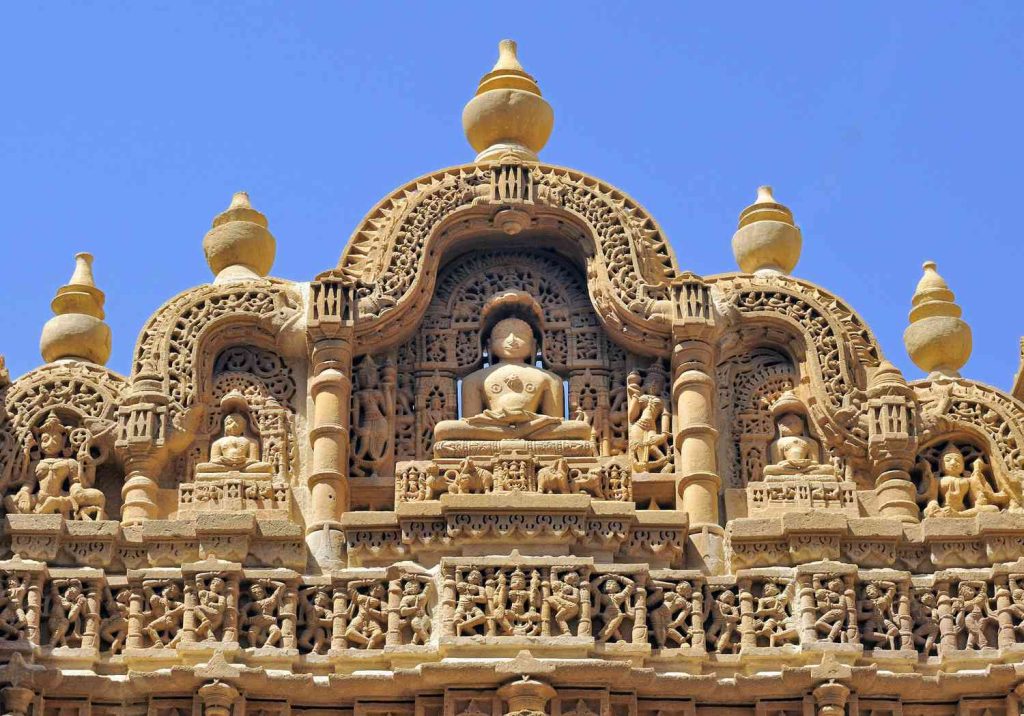Jainism, one of the three ancient Indian religions, has had a long and complex journey to be recognized as a legally distinct religion in India. For many years, it was considered a Hindu sect or a Buddhist heresy. However, through a series of historical events and legal battles, Jainism finally achieved the status of a minority religion in India. In this article, we will delve into the history of the Jain community’s demand for minority status and the significant court judgments that eventually led to this recognition.
History of Jain Demand for Minority Status

The Jain demand for minority status dates back almost a century. In 1909, Seth Manek Chand Hirachand, an eminent Jain leader from Mumbai, made an appeal to the Governor General of India for the inclusion of the Jain community in the Central Legislature. This appeal was based on the principle of giving representation to important minorities in British India. Although the petition was transferred to the Government of Bombay, it set the stage for the Jain community’s long-standing demand for recognition as a distinct religious community.
The Recommendation of the National Minorities Commission
In 1993, the National Minorities Commission recommended that the Jain community be declared as a minority religious community. The commission took into consideration the relevant constitutional provisions, various judicial pronouncements, the fundamental differences in philosophy and beliefs compared to Hinduism, and the substantial number of Jain population in the country. This recommendation paved the way for the recognition of Jainism as a minority religion in India.
The Bal Patil Judgment

In 2005, the Supreme Court of India declined to issue a writ of Mandamus towards granting Jains the status of a religious minority throughout India. However, the Court left it to the respective states to decide on the minority status of Jain religion. In one of its observations, the Court acknowledged the distinctiveness of Jainism as a religion formed on the basis of the quintessence of Hindu religion. It emphasized Jainism’s emphasis on non-violence (Ahimsa) and compassion (Karuna) and its rejection of the belief in a creator God, distinguishing it from Hinduism.
The Granting of National Minority Status
Finally, on 27th January 2014, the Government of India explicitly awarded minority status to the Jain community in India. This recognition was made under Section 2(c) of the National Commission for Minorities (NCM) Act of 1992. The minority status was granted to the Jain community, which constitutes 0.4 percent of the population, making it the sixth community in India to be designated as a “national minority.” This decision came after a petition filed with the Supreme Court of India in 2005, supported by the National Minorities Commission, advocating for the recognition of Jainism as a separate religion.
Court Judgments on Jainism as a Separate Religion
Several court judgments have contributed to the recognition of Jainism as a separate religion in India. In 1927, the Madras High Court held that Jainism was flourishing several centuries before Christ, establishing its antiquity and distinctiveness. In 1954, the Supreme Court of India observed that Jainism and Buddhism were distinct religions in contrast with Vedic religion. The court recognized that Jainism and Buddhism were integral parts of Indian life, culture, and philosophy, despite not being considered Hindu by faith.
In 2006, the Supreme Court of India further clarified that Jainism is indisputably not a part of Hinduism. This judgment emphasized the rejection of the authority of the Vedas, the sacred texts of Hinduism, by Jains and their unique philosophical principles of Ahimsa (non-violence), Anekantvad (non-absolutism), and Aparigraha (non-possessiveness). These court judgments played a crucial role in establishing Jainism’s independent status as a religion.
List of States Where Jains Have Been Declared as a Minority
Several states in India have recognized Jains as a minority community. These states include Maharashtra, Karnataka, Gujarat, Madhya Pradesh, Uttar Pradesh, Jharkhand, Delhi, Uttarakhand, West Bengal, Andhra Pradesh, Haryana, Tamil Nadu, Punjab, Assam, and Rajasthan. The recognition of Jains as a minority community in these states further solidifies their distinct identity within the Indian religious landscape.
Conclusion
The recognition of Jainism as a legally distinct religion in India has been a long and arduous journey. From being considered a Hindu sect or a Buddhist heresy to finally achieving the status of a minority religion, the Jain community has fought for their distinct religious identity. Through historical events, recommendations by the National Minorities Commission, and significant court judgments, Jainism’s unique philosophical principles and beliefs have been acknowledged and respected. The recognition of Jainism as a separate religion in India is an important milestone in upholding the principles of religious freedom and diversity in the country.




No comments! Be the first commenter?